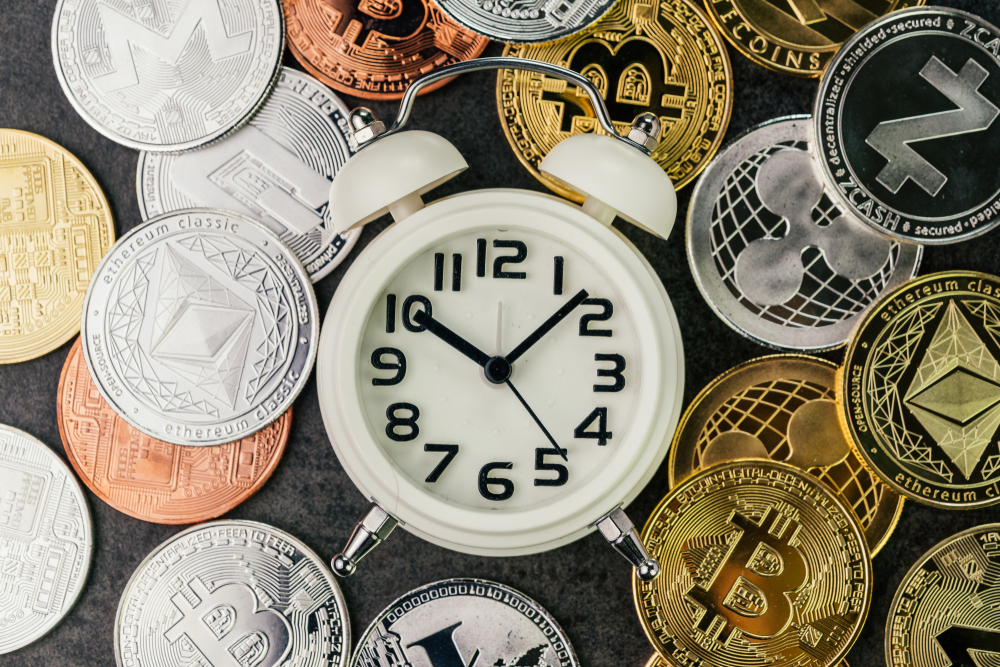Altcoin Struggles Amid Tight Liquidity: Will Fed Action Spark a Late-Cycle Rally?
13.03.2025 17:00 1 min. read Alexander Stefanov
Since Donald Trump's victory in the November 2024 election, his pro-crypto policies have positively impacted Bitcoin, which has surged nearly 22% since November 5.
However, altcoins have struggled to keep up, with their market growing only 14% during the same period. Major altcoins like Ethereum, Solana, Cardano, and Dogecoin have seen significant declines over the past year, raising questions about what might trigger a rally for these assets.
Several factors could potentially help altcoins rebound, including Trump’s ongoing crypto-friendly policies, upcoming spot ETFs for Solana, XRP, and Litecoin, and market reactions to the U.S. tariffs imposed on China, Canada, and Mexico. Additionally, concerns about a U.S. recession could shift investor behavior, potentially benefiting altcoins.
However, tight liquidity in the U.S. is seen as the primary issue holding back altcoins. According to analyst VirtualBacon, the U.S. Federal Reserve’s Quantitative Tightening, the depletion of the Reverse Repo Facility, and the low balance in the U.S.
Treasury General Account are all draining liquidity from the market. VirtualBacon also highlights the risk of a debt maturity crisis in 2025, which could worsen the liquidity squeeze unless the Fed intervenes.
If the Fed responds by injecting liquidity, altcoins could experience a rally, but this may only happen later in the cycle when financial conditions improve. Investors who position themselves well during this phase may stand to gain when the market eventually shifts.
-
1
Ethereum Faces Heavy Sell-Off Amid Rising Geopolitical Tensions
13.06.2025 14:00 1 min. read -
2
Bitcoin Holds Above $100K, But Analyst Sees Trouble Brewing
07.06.2025 17:00 1 min. read -
3
Is a New Altcoin Cycle Brewing in 2025?
13.06.2025 12:00 1 min. read -
4
Dogecoin Stuck in a Holding Pattern – Can Bulls Force a Break Above $0.21?
15.06.2025 16:00 2 min. read -
5
South Korea’s New President Pushes for Domestic Stablecoins
11.06.2025 16:00 2 min. read
First-Ever Staked Crypto ETF Set to Launch in the U.S. This Week
A new milestone in cryptocurrency investment products is set to unfold this Wednesday, as REX Shares prepares to launch the first-ever U.S.-listed staked crypto exchange-traded fund (ETF), according to a company announcement shared on X.
XRP Price Prediction: Can XRP Hit $4 After XRPL EVM Sidechain Launch?
XRP (XRP) has gone up by 1.2% in the past 24 hours but, behind that mild price increase, there has been a significant spike in trading volumes. During this period, $2.4 billion worth of XRP has exchanged hands, representing an 83% increase. Just hours ago, Ripple announced the official launch of its Ethereum-compatible sidechain called […]
Ethereum Launches Onchain Time Capsule to Mark 11th Anniversary in 2026
A community-driven initiative launched Monday is inviting Ethereum users to lock art, memories, and personal messages inside a decentralized “time capsule,” set to be opened on the network’s 11th anniversary next year.
Ethereum Accumulation Surges While U.S. Politics Stir Market Uncertainty
A new CryptoQuant report highlights a growing divergence between long-term Ethereum holders and short-term Bitcoin buyers, with significant accumulation behavior unfolding in both markets amid increasing political and economic tension in the U.S.
-
1
Ethereum Faces Heavy Sell-Off Amid Rising Geopolitical Tensions
13.06.2025 14:00 1 min. read -
2
Bitcoin Holds Above $100K, But Analyst Sees Trouble Brewing
07.06.2025 17:00 1 min. read -
3
Is a New Altcoin Cycle Brewing in 2025?
13.06.2025 12:00 1 min. read -
4
Dogecoin Stuck in a Holding Pattern – Can Bulls Force a Break Above $0.21?
15.06.2025 16:00 2 min. read -
5
South Korea’s New President Pushes for Domestic Stablecoins
11.06.2025 16:00 2 min. read


